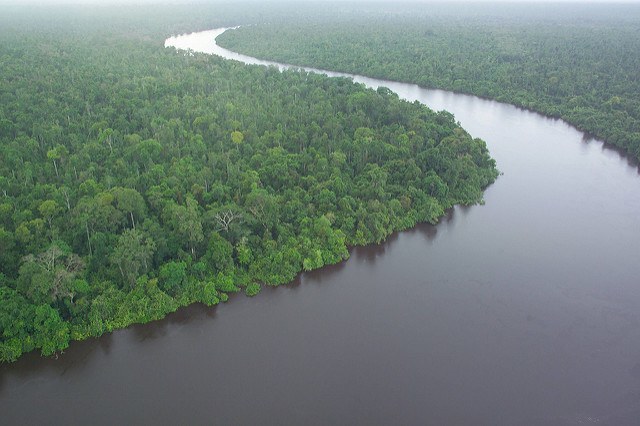Mining ban in Indonesia can restore millions of hectares of protected and conserved forest land
Blog

An immediate prohibition will positively impact Indonesia’s mining sector governance
Publish What You Pay (PWYP) Indonesia is calling for a mining moratorium, meaning a temporary ban on activity, to immediately regulate the problematic mining situation permits on conservation and protected forest land. The permit moratorium based on experience in the Indonesian province of Aceh since 2014 had a positive impact on curbing the acceleration of deforestation and land damage, according to the Coordinator for Anti-Corruption Movement (GeRAK) in Aceh, Askalani.
The moratorium will be able to restore 407,162 hectares of land in Aceh if civil society plays an important role to successfully escort this initiative throughout its duration. Equally, the moratorium policy will establish important law enforcement regarding permit violation, allowing forest land utilisation and forest area designation to be improved.
PWYP Indonesia is asking Joko Widodo, the President of Indonesia, to be serious about his promise to issue a mining moratorium. He has previously spoken about the importance of protecting wildlife and forest area from palm oil and mining permits in Karya Island earlier this year. Yet bad governance of mining in regions like East Kalimantan and Samarinda has led to a number of children dying in mining pits which have not been repaired or regulated.
Carouls Tuah, the Director of Pokja 30, a member of PWYP Indonesia, in East Kalimantan hopes the regulation will be enforced by law. “Indonesia’s Corruption Eradication Commission, Komisi Pemberantasan Korupsi (KPK) has to be involved with the law enforcement to reduce corruption crime,” said Tuah. “If moratorium remains only a dialogue then we will see many more deaths in mining pits.”
Arif Munadar, a Researcher from the Swandiri Institute in West Kalimantan, stated that the government needs to learn from the moratorium policy. The moratorium map of affected areas indicates violation of law enforcement on forest land, an issue which must be regulated on a governmental level. If a new mining permit map is created then forest exploitation, land utilisation, and any changes in forest area designation can be monitored. This would solve important ecological and social issues in affected areas.
According to Munadar, there is a huge area of overlap between mining permitted areas and protected or conserved forest land. Governments must enforce this urgent moratorium which will not only solve some of the area’s ecological issues, but also resolve social conflict, improve permission governance, and general environmental conditions.
The National Coordinator of PWYP Indonesia, Maryati Abdullan, said the moratorium regulation is expected to detail the technicalities involving its mechanism. Knowing the mechanism will be important information for related ministry and stakeholders such as the Ministry of Forestry, Ministry of Energy, Ministry of Mineral Resource and other regional governments.
“The promise to do a moratorium was announced a month ago, we hope that it is not a promise without realisation. The President has to arrange the regulation immediately,” said Abdullan.
There are 6.3 million hectares of mining permit area on conserved and protected forest land in Indonesia, despite the enforcement of a law created in 1999 which stated those areas have to be free from any mining activity.
